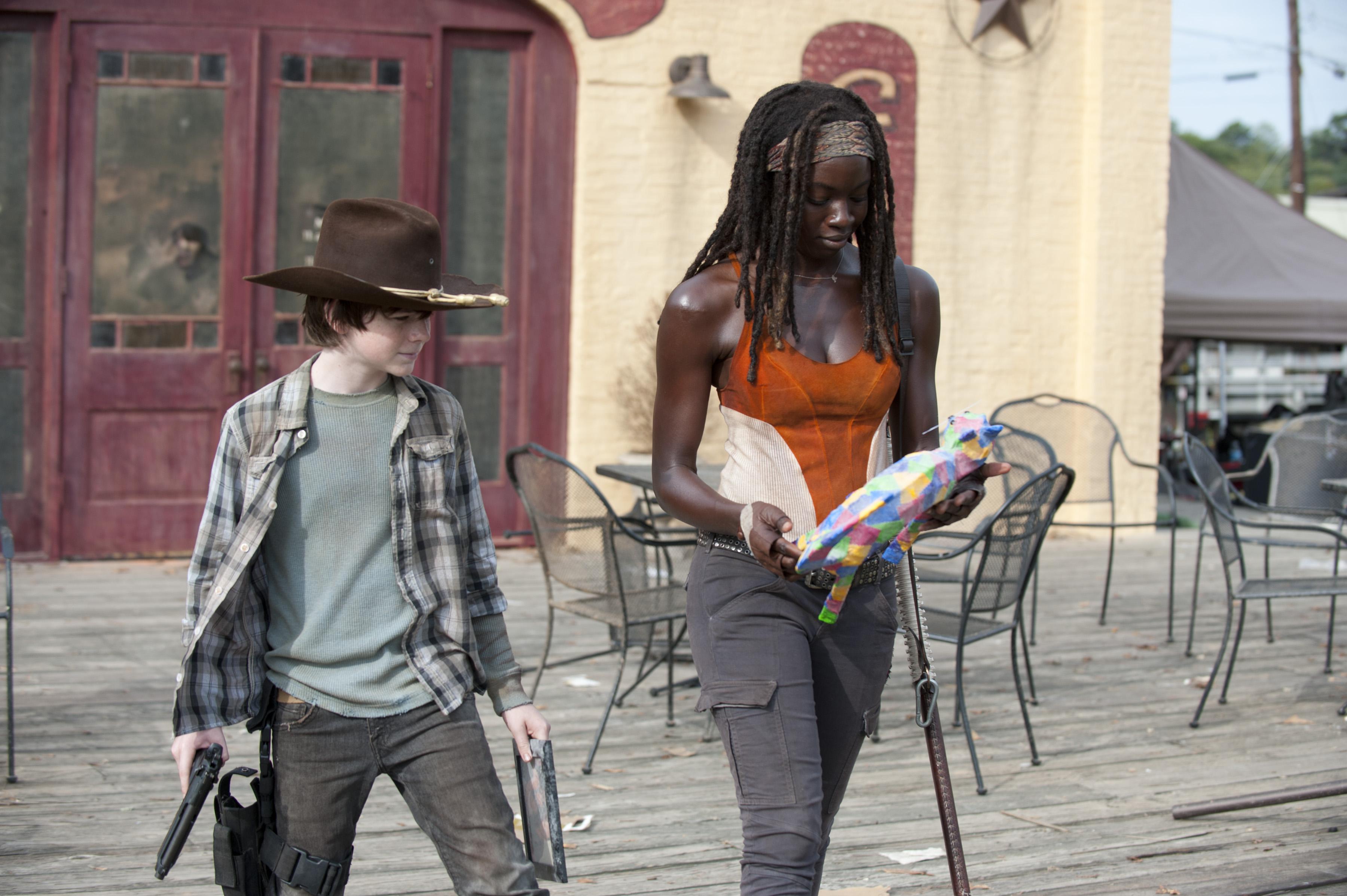Season 3 has proved that The Walking Dead is just as effective at building suspense as 24. That’s a mixed blessing. Suspense is great. But the mere fact that that a comparison with 24 holds water means The Walking Dead was losing something it once had: a soul. But “Clear” reassured me that the soul has just been hiding among the smashed zombie heads.
This (often fantastic) season of The Walking Dead has felt like a machine, continuously plowing its characters through the mud and guts of the zombie apocalypse. While some grimness is to be expected from a drama about the end of days, there’s been enough of it to render Morgan’s nihilism infectious. Axel’s last-minute characterization and subsequent demise in “Home” showed that The Walking Dead really is committing to the bad horror movie trope of peripheral characters existing specifically to be killed. Meanwhile, what qualifies as development among the primary characters are things like Rick’s hallucinations, which seem to exist so the writers can bludgeon viewers over the head with Rick’s guilt.
Is The Walking Dead supposed to be deliberate, subtle, and spiritual, like the pilot suggested? Or is it supposed to be like 24 with zombies, with the viewers constantly teased to the next series of calamities? (In case anyone is wondering, yes, Carl is Jack Bauer in this analogy.)
Having accidentally watched all of 24 —damn you, Netflix—I think there’s something to be said for both visions. However, I’m glad that “Clear” takes the show further in the direction of the former. Some might gripe about the irrelevance of Rick’s side quest, but dislocating the audience from the main storyline was a small price to pay for a sorely needed infusion of character development. As Scott Meslow from the Atlantic writes, “Clear” works “by invoking The Walking Dead’s masterful pilot, still the best single episode this series has ever produced.”
Scott Gimple, who wrote “Clear” and is taking over the show next season, achieved this not only by returning the characters to the pilot’s setting and bringing back Morgan but by formulating a plot that is structurally purposeful. The episode has a mirror-like symmetry to it: Rick, Carl, and Michonne first pass a distressed traveler, then a car accident, then the pile of burned bodies, and pass the same scenes in reverse on their way out. Rather than just reacting to the Governor’s conflict, each character has an objective and proactively works to achieve it, echoing the old Kurt Vonnegut saying, “Every character should want something, even if only a glass of water.” In the course of their individual pursuits, we not only learn more about the characters (for one, Michonne has a bizarre taste in art), but we watch them change. Carl becomes more accepting of Michonne; Michonne decides she wants to be a team player; and Rick gets a disturbing reflection of his own guilt. Even stubbornly crazy Morgan appears to change at the end, exclaiming that he has to “clear,” whatever that means. (Maybe Lawrence Wright knows?)
I cringe whenever I hear the term “character development.” People in the real world don’t change as frequently, extensively, or quickly as characters on TV. Still, the next time Rick and company are surrounded by zombies and the Governor is shooting at them, thanks to “Clear,” I’ll be more inclined to care.
